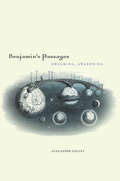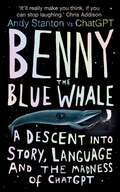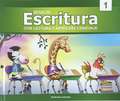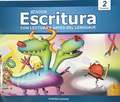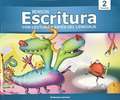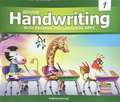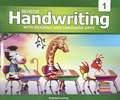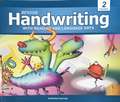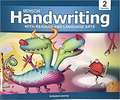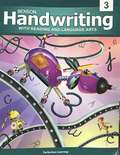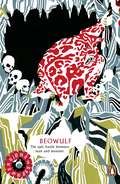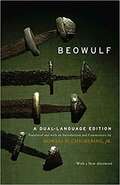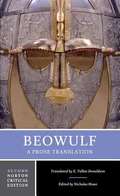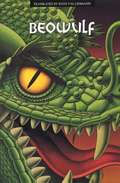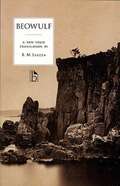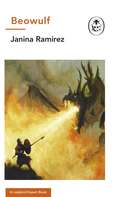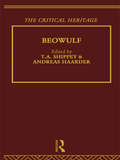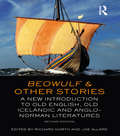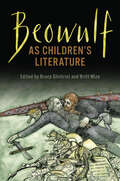- Table View
- List View
Benjamin's Passages: Dreaming, Awakening
by Alexander GelleyIn transposing the Freudian dream work from the individual subject to the collective, Walter Benjamin projected a “macroscosmic journey” of the individual sleeper to “the dreaming collective, which, through the arcades, communes with its own insides.” Benjamin’s effort to transpose the dream phenomenon to the history of a collective remained fragmentary, though it underlies the principle of retrograde temporality, which, it is argued, is central to his idea of history.The “passages” are not just the Paris arcades: They refer also to Benjamin’s effort to negotiate the labyrinth of his work and thought. Gelley works through many of Benjamin’s later works and examines important critical questions: the interplay of aesthetics and politics, the genre of The Arcades Project, citation, language, messianism, aura, and the motifs of memory, the crowd, and awakening.For Benjamin, memory is not only antiquarian; it functions as a solicitation, a call to a collectivity to come. Gelley reads this call in the motif of awakening, which conveys a qualified but crucial performative intention of Benjamin’s undertaking.
Bennewitz, Goethe, 'Faust'
by David G. JohnFritz Bennewitz (1926-1995) was the director-in-chief of East Germany's Weimar National Theatre. Extraordinary in his capacity for cultural and linguistic adjustment, he directed productions in twelve countries, always adapting shows to make them meaningful to local audiences. Notably, Bennewitz conducted stagings of Goethe's Faust in four different languages over a series of seven productions -- three in pre-unification Weimar, one in the reunited Germany, and one each in New York, Manila, and Mumbai.The first comprehensive account of Bennewitz's remarkable career, Bennewitz, Goethe, Faust is also a pioneering study of intercultural interpretations of Faust. David G. John brings to light previously unknown archival materials -- including annotated playbooks, correspondence, translations, videos, and reception information -- as well as unpublished production photos from the stagings discussed in the book. Bennewitz, Goethe, Faust makes a cogent argument for this director's place alongside the twentieth century's greatest theatre innovators.
Benny the Blue Whale: One Author's Descent into the Madness of AI
by Andy StantonAI is changing the world at frightening speed. A bestselling author decides to find out more… &‘Something profound and utterly brilliant is going on… hilarious.&’ THE TIMES Is ChatGPT the end of creative industries as we know them? An ethical quagmire from which there is no return? A threat to all our jobs, as we keep hearing on the news? Bestselling children&’s author Andy Stanton has made a career out of writing differently – from the unconventional &‘hero&’ of his bestselling Mr Gum series to his penchant for absurdist plots, his children&’s books are anything but formulaic. When a friend introduces him to ChatGPT, the new large language chatbot, Andy is as sceptical as he is curious. Can this jumble of algorithms really mimic the spontaneity of human thought? Could it one day replace human authors like him for good? And are we soon to be ruled over by despotic robot overlords? He decides there&’s only one thing for it – he must test this bot&’s capabilities. Eventually, he settles on a prompt that will push the algorithm to its creative limits: &‘tell me a story about a blue whale with a tiny penis.&’ Chaos ensues. What follows is a surprising and illuminating battle between Andy and ChatGPT that maybe, just maybe, might help us all understand AI a little bit better. Join Andy and his beleaguered AI lackey on a rollicking metafictional journey through the art of storytelling. Presenting his prompts and the AI-generated narrative alongside extensive commentary, Stanton provides a startling paean to the art of a good story and boundless human creativity. Hopeful and hilarious, Benny the Blue Whale provides a joyfully anarchic meditation on AI, literature and why we write. *** A WATERSTONES AND NEW SCIENTIST BEST BOOK OF 2023 &‘There&’s no book like it. Scholarly, childish, fascinating and hilarious – one of our funniest writers dissects what it takes to build a story and what that tells us about being human. It&’ll really make you think, if you can stop laughing.&’ Chris Addison, co-creator of BREEDERS &‘Entertaining and alarmingly relevant, provocative and philosophically satisfying, it&’s ultimately a profoundly human text.&’ OBSERVER &‘A magnificent experiment by a perfect fool – deep and shallow and stupid and clever – the perfect use of AI (Andy Intelligence).&’ Robin Ince, author of THE IMPORTANCE OF BEING INTERESTED &‘Benny the Blue Whale is many things. It&’s a fascinating discourse on the nature of language and storytelling. It&’s a philosophical treatise on the possibilities of artificial intelligence. It&’s a receptacle for obscenely hilarious jokes... A brilliant and beautiful cyborg: part human brain, part computational muscle. It&’s a post-post-modern work of genius.&’ Anthony McGowan, Carnegie Medal-winning author of LARK
Benson Escritura, con lectura y artes del lenguaje, 1 [Slant]
by Susan C. ThiesNIMAC-sourced textbook
Benson Escritura, con lectura y artes del lenguaje, 1 [Vertical]
by Susan C. ThiesNIMAC-sourced textbook
Benson Escritura, con lectura y artes del lenguaje, 2 Transition [Slant]
by Susan C. ThiesNIMAC-sourced textbook
Benson Escritura, con lectura y artes del lenguaje, 2 Transition [Vertical]
by Susan C. ThiesNIMAC-sourced textbook
Benson Escritura, con lectura y artes del lenguaje, K [Slant]
by Susan C. ThiesNIMAC-sourced textbook
Benson Escritura, con lectura y artes del lenguaje, K [Vertical]
by Susan C. ThiesNIMAC-sourced textbook
Benson: Handwriting With Reading and Language Arts, 1 [Slant]
by Perfection Learning CorporationNIMAC-sourced textbook
Benson: Handwriting With Reading and Language Arts, 1 [Vertical]
by Perfection Learning CorporationNIMAC-sourced textbook
Benson Handwriting, With Reading and Language Arts, 2 Transition [Slant]
by Perfection Learning CorporationNIMAC-sourced textbook
Benson Handwriting, with Reading and Language Arts, 2 Transition [Vertical]
by Perfection Learning CorporationNIMAC-sourced textbook
Benson Handwriting, with Reading and Language Arts, 3 [Vertical]
by Perfection Learning CorporationNIMAC-sourced textbook
Benson Handwriting, with Reading and Language Arts, K [Slant]
by Perfection Learning CorporationNIMAC-sourced textbook
Benson Handwriting, with Reading and Language Arts, K [Vertical]
by Perfection Learning CorporationNIMAC-sourced textbook
Beowulf (Legends from the Ancient North)
by Petra BornerPart of a new series Legends from the Ancient North, Beowulf is one of the classic books that influenced JRR Tolkien's The Hobbit and The Lord of the Rings'So the company of men led a careless life,All was well with them: until One beganTo encompass evil, an enemy from hell.Grendel they called this cruel spirit...'J.R.R. Tolkien spent much of his life studying, translating and teaching the great epic stories of northern Europe, filled with heroes, dragons, trolls, dwarves and magic. He was hugely influential for his advocacy of Beowulf as a great work of literature and, even if he had never written The Hobbit and The Lord of the Rings, would be recognised today as a significant figure in the rediscovery of these extraordinary tales.Legends from the Ancient North brings together from Penguin Classics five of the key works behind Tolkien's fiction.They are startling, brutal, strange pieces of writing, with an elemental power brilliantly preserved in these translations.They plunge the reader into a world of treachery, quests, chivalry, trials of strength.They are the most ancient narratives that exist from northern Europe and bring us as near as we will ever get to the origins of the magical landscape of Middle-earth (Midgard) which Tolkien remade in the 20th century.
Beowulf: A Dual-Language Edition
by Howell D. ChickeringThe first major poem in English literature, Beowulf tells the story of the life and death of the legendary hero Beowulf in his three great battles with supernatural monsters. The ideal Anglo-Saxon warrior-aristocrat, Beowulf is an example of the heroic spirit at its finest. <p><p> Leading Beowulf scholar Howell D. Chickering, Jr.’s, fresh and lively translation, featuring the Old English on facing pages, allows the reader to encounter Beowulf as poetry. This edition incorporates recent scholarship and provides historical and literary context for the modern reader.
Beowulf: Contexts, Criticism
by E. Talbot Donaldson Nicholas HoweThe text of this edition of "Beowulf" is based on the highly regarded Donaldson prose translation of the Anglo-Saxon epic poem.
Beowulf: An Imitative Translation
by Ruth P. M. LehmannThe name "Beowulf" lingers in our collective memory, although today fewer people have heard the tale of the Germanic hero's fight with Grendel, the dreadful Monster of the Mere, as recounted in this Anglo-Saxon epic. This edition of Beowulf makes the poem more accessible than ever before. Ruth Lehmann's imitative translation is the only one available that preserves both the story line of the poem and the alliterative versification of the Anglo-Saxon original. The characteristic features of Anglo-Saxon poetry- alliterative verse with first-syllable stress, flexible word order, and inflectional endings-have largely disappeared in Modern English, creating special problems for the translator. Indeed, many other translations of Beowulf currently available are either in prose or in some modern poetic form. Dr. Lehmann's translation alone conveys the "feel" of the original, its rhythm and sound, the powerful directness of the Germanic vocabulary. In her introduction, Dr. Lehmann gives a succinct summary of the poem's plot, touching on the important themes of obligation and loyalty, of family feuds, unforgivable crimes, the necessity of revenge, and the internal and external struggles of the Scandinavian tribes. She also describes the translation process in some detail, stating the guiding principles she used and the inevitable compromises that were sometimes necessary.
Beowulf
by R. M. LiuzzaThe classic story of Beowulf, hero and dragon-slayer, appears here in a new translation accompanied by genealogical charts, historical summaries, and a glossary of proper names. These and other documents sketching some of the cultural forces behind the poem's final creation will help readers see Beowulf as an exploration of the politics of kingship and the psychology of heroism, and as an early English meditation on the bridges and chasms between the pagan past and the Christian present. A generous sample of other modern versions of Beowulf sheds light on the process of translating the poem.
Beowulf: A Ladybird Expert Book (The Ladybird Expert Series #26)
by Janina RamirezPart of the ALL-NEW LADYBIRD EXPERT SERIES'This accessible illustrated guide is a great introduction to the story, its origins and its enduring legacy' BBC HISTORY- Which is more terrifying - a monster or its mother? - Why did Berserkers run naked into battle? - How was the story of Beowulf almost lost forever?PLUNGE into the adventures of Beowulf, the 6th Century hero who defeated the monster Grendel, became king of his people, and slayed a tremendous dragon. Surviving in a single, burnt manuscript, Beowulf continues to entrance readers and inspire major works of fantasy today.WARRIORS. MONSTERS. DRAGONS. GOLD.Janina Ramirez's Beowulf is an accessible and authoritative guide to the spellbinding world and daring feats of a poem remembered through the centuries.
Beowulf: The Critical Heritage (Critical Heritage Ser.)
by T. A. Shippey Andreas HaarderBeowulf is the oldest and most complete epic poem in any non-Classical European language. Our only manuscript, written in Old English, dates from close to the year 1000. However, the poem remained effectively unknown even to scholars until the year 1815, when it was first published in Copenhagen. This impressive volume selects over one hundred works of critical commentary from the vast body of scholarship on Beowulf - including English translations from German, Danish, Latin and Spanish - from the poem's first mention in 1705 to the Anglophone scholarship of the early twentieth century. Tom Shippey provides both a contextual introduction and a guide to the eighteenth- and nineteenth-century scholarship which generated these Beowulf commentaries. The book is a vital document for the study of one of the major texts of 'the Northern renaissance', in which completely unknown poems and even languages were brought to the attention first of the learned world and then of popular culture. It also acts as a valuable guide to the development of nationalist and racist sentiment, beginning romantically and ending with World War and attempted genocide.
Beowulf and Other Stories: A New Introduction to Old English, Old Icelandic and Anglo-Norman Literatures
by Joe Allard Richard NorthBeowulf & Other Stories was first conceived in the belief that the study of Old English – and its close cousins, Old Icelandic and Anglo-Norman – can be a genuine delight, covering a period as replete with wonder, creativity and magic as any other in literature. Now in a fully revised second edition, the collection of essays written by leading academics in the field is set to build upon its established reputation as the standard introduction to the literatures of the time. Beowulf & Other Stories captures the fire and bloodlust of the great epic, Beowulf, and the sophistication and eroticism of the Exeter Riddles. Fresh interpretations give new life to the spiritual ecstasy of The Seafarer and to the imaginative dexterity of The Dream of the Rood, andprovide the student and general reader with all they might need to explore and enjoy this complex but rewarding field. The book sheds light, too, on the shadowy contexts of the period, with suggestive and highly readable essays on matters ranging from the dynamism of the Viking Age to Anglo-Saxon input into The Lord of the Rings, from the great religious prose works to the transition from Old to Middle English. It also branches out into related traditions, with expert introductions to the Icelandic Sagas, Viking Religion and Norse Mythology. Peter S. Baker provides an outstanding guide to taking your first steps in the Old English language, while David Crystal provides a crisp linguistic overview of the entire period. With a new chapter by Mike Bintley on Anglo-Saxon archaeology and a revised chapter by Stewart Brookes on the prose writers of the English Benedictine Reform, this updated second edition will be essential reading for students of the period.
Beowulf as Children’s Literature
by Bruce Gilchrist and Britt MizeThe single largest category of Beowulf representation and adaptation, outside of direct translation of the poem, is children’s literature. Over the past century and a half, more than 150 new versions of Beowulf directed to child and teen audiences have appeared, in English and in many other languages. In this collection of original essays, Bruce Gilchrist and Britt Mize examine the history and processes of remaking Beowulf for young readers. Inventive in their manipulations of story, tone, and genre, these adaptations require their authors to make countless decisions about what to include, exclude, emphasize, de-emphasize, and adjust. This volume considers the many forms of children’s literature, focusing primarily on picture books, illustrated storybooks, and youth novels, but taking account also of curricular aids, illustrated full translations of the poem, and songs. Contributors address issues of gender, historical context, war and violence, techniques of narration, education, and nationalism, investigating both the historical and theoretical dimensions of bringing Beowulf to child audiences.
